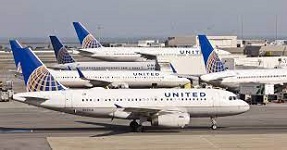The African Airlines Association (AFRAA) and Ethiopian Airlines concluded the 9th Aviation Stakeholders’ Convention with an alignment on priorities for the efficient recovery of the air transport industry in Africa.
The event which was held in virtual format, was graced by the Minister of Transport of the Republic of Ethiopia, Mrs. Dagmawit Moges as the guest of honor and was attended by 538 participants from the air transport industry and fraternity in Africa and across the globe.
Held under the theme: “Building Blocks for the Air Transport Industry Recovery”, the Convention provided an ideal forum for air transport industry stakeholders to dialogue, exchange knowledge and experiences for the sector’s recovery efforts and deliberate on feasible solutions to alleviate challenges in the African travel industry.
Highlighting the focus of AFRAA in supporting the survival and sustainability of airlines and the industry as a whole, Mr. Abdérahmane Berthé in his keynote address emphasized the need for a coordinated approach. He said: “AFRAA continues to take necessary actions in close collaboration with air transport institutions and stakeholders to support the industry from the impacts of the pandemic and for an efficient restart.”
Speaking as Chief Guest; Dagmawit Moges acknowledged the importance of the African aviation industry noting that aviation is the best option to connect African States among themselves and as well as with the rest of the world. She noted: “The convention is an excellent opportunity to discuss more on the solutions and long term options that successfully drive the airline industry.” She encouraged African operators to implement a series of interventions such as enhanced cooperation in the travel ecosystem, diversification of the business and digitalization of the passenger journey.
On his part, Mr. Tewolde Gebremariam, Ethiopian Airlines Group CEO, whose welcome speech was delivered on his behalf by Mr. Esayas WoldeMariam – Ethiopian Airlines Chief Commercial Officer, stressed the importance of government support to advance the industry and create globally competent African carriers. “I believe that a sustainable, interconnected and affordable Air Transport in Africa is not beyond the realm of possibility if we consolidate our efforts. By doing so, we can contribute to the continent’s economic advancements.”
Event Recommendations and Highlights
Travel ecosystem stakeholders at the Convention deliberated on the various on-going and expected actions towards the restart of the industry in the context of the African continent and recommended the following actions for a durable restart and recovery of air travel in Africa:
Priority actions for the industry restart
Financial support to airlines as well as the implementation of harmonized and internationally adopted health and travel protocols were singled out as the top priority focus areas for the industry restart.
Safe reopening of borders
African States were urged to expedite the vaccine roll-out campaign in Africa, lift prohibitive travel restrictions, adopt globally interoperable digital health pass or certificate and make available universal, accessible and affordable COVID-19 testing facilities to all air travellers.
Financial support to airlines
A call was made for greater collaboration and acceleration of the collective efforts among stakeholders with States and financial institutions urged to provide financial support to the travel industry. Airlines on their end were encouraged to improve the sustainability of their operations in order to enhance their bankability and thus be in a position to receive better support from financial institutions.
Sustainable airline operations – actions by airlines
African Airlines were encouraged to be flexible, lean, smart, collaborate and have a clear strategic focus putting in place a future-ready business model.
Sustainable airline operations – actions by industry stakeholders
Stakeholders were urged to address the issue of high taxes, fees and charges that impact the sustainability of the air travel industry and support the implementation of the Africa Continental Free Trade Agreement (AfCFTA) and the single African Air Transport Market (SAATM) to drive business growth in Africa and intra-Africa connectivity.
Cargo operations
Operators were urged to treat cargo as core-business and to give it priority in strategy, fleet planning, network development and to be represented at the board-level.
With AfDB support, AFCAC, AFRAA and IATA to continue with joint efforts to prepare African airlines for ISSA or IOSA to further improve Africa safety performance. Additionally, AFRAA airlines with FAA or EASA approved MROs were urged to contribute in the enhancement safety through continuous airworthiness and generate new revenues under the framework of the AFRAA-UTD MRO joint initiative.
Technology
Investment in technology that will enhance the passenger experience, drive cost savings and improve operational efficiencies was highlighted as key. Airlines were urged to leverage on smarter retailing to survive in today’s dynamic market and unlock incremental revenue streams.
Fuel
Ethiopian is currently implementing a 15-year strategic plan called Vision 2025 that will see it become the leading aviation group in Africa with Seven business units: Ethiopian International Services; Ethiopian Cargo & Logistics Services; Ethiopian MRO Services; Ethiopian Aviation Academy; Ethiopian ADD Hub Ground Services, Ethiopian Airports Services and Ethiopian Express Services (Domestic). Ethiopian is a multi-award-winning airline registering an average growth of 25% in the past seven years.
Ethiopian Airlines (Ethiopian) is the fastest growing Airline in Africa. In its seventy-five years of operation, Ethiopian has become one of the continent’s leading carriers, unrivalled in efficiency and operational success. Ethiopian commands the lion’s share of the Pan-African passenger and cargo network operating the youngest and most modern fleet to 127 international passenger and cargo destinations across five continents.
Ethiopian fleet includes ultra-modern and environmentally friendly aircraft such as Airbus A350, Boeing 787-8, Boeing 787-9, Boeing 777-300ER, Boeing 777-200LR, Boeing 777-200 Freighter, Bombardier Q-400 double cabin with an average fleet age of five years. In fact, Ethiopian is the first airline in Africa to own and operate these aircraft.
About Ethiopian Airlines

